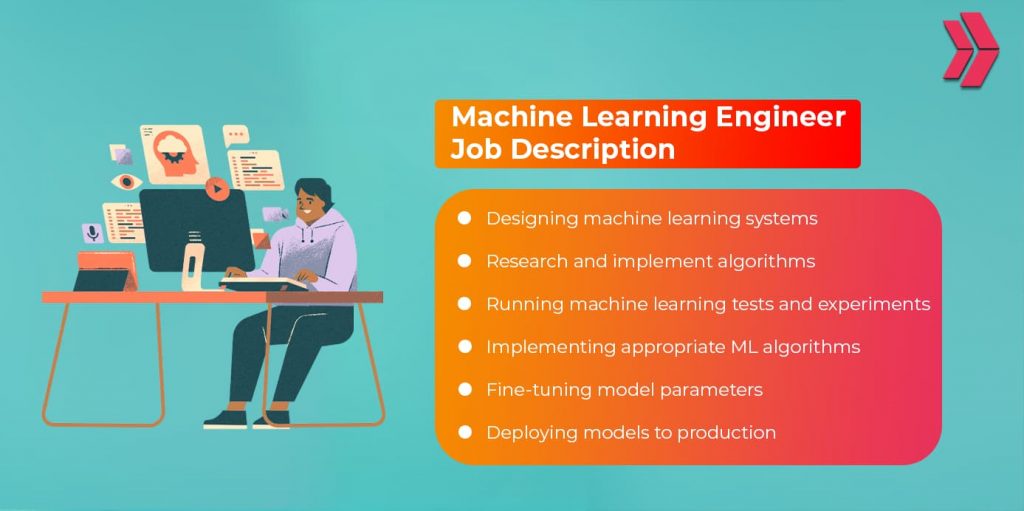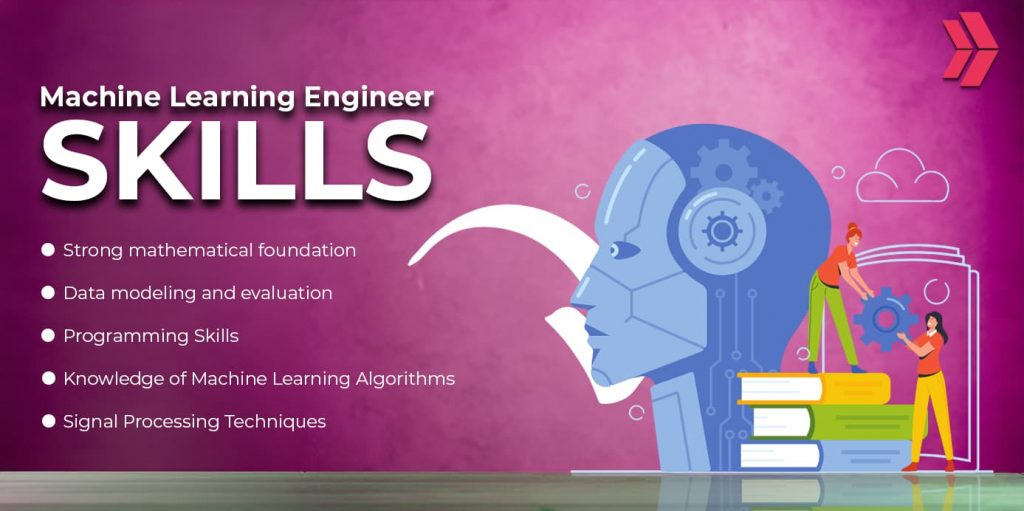Machine learning engineers are in high demand, thanks to the rapid growth of artificial intelligence (AI). The Bureau of Labor Statistics predicts a 22% job growth rate for this role from 2020 to 2030. Machine learning engineers design and optimize AI systems that learn and improve on their own. These professionals enjoy competitive salaries, with an average income of around $128,000 in the U.S., while experienced engineers can make $165,000 or more annually.
This guide will walk you through everything you need to know about becoming a machine learning engineer, from essential skills to career paths and opportunities in this exciting field.

What is Machine Learning?
Machine learning is a part of artificial intelligence focused on creating systems that analyze data and make decisions. It’s different from general AI, which includes any technology simulating human intelligence. Machine learning specifically involves training computers to make predictions and learn from data without explicit programming.
Machine learning systems use data and algorithms to predict outcomes, such as stock market trends, product recommendations, or medical diagnoses. Industries that rely on machine learning include healthcare, finance, automotive, and entertainment.
What is a Machine Learning Engineer?
A machine learning engineer is a specialized software engineer who develops and deploys AI systems that learn from data. Combining computer science, data analysis, and software engineering, these engineers create models and algorithms that process data, make predictions, and refine their accuracy over time. Machine learning engineers must also communicate their findings clearly to colleagues from technical and non-technical backgrounds alike.
What are the Key Responsibilities of a Machine Learning Engineer?
Machine learning engineers handle a range of tasks, including:
- Data Collection and Cleaning: Gather and process data to feed into machine learning models.
- Model Development: Use algorithms and neural networks to build models.
- Testing and Validation: Check models for accuracy and reliability.
- Implementation: Deploy models to production.
- Monitoring and Maintenance: Track system performance and update models as needed.
- Collaboration: Work with data scientists, software developers, and IT teams to integrate models into broader systems.
What Makes a Machine Learning Engineer’s Job Unique?
Machine learning engineers design and optimize systems capable of making decisions independently. Their work is both creative and technical, allowing them to apply problem-solving skills to real-world issues in areas like fraud detection, healthcare diagnostics, and even driverless cars.

How to Become a Machine Learning Engineer?
Here are the four steps to get started in the machine learning engineer field:
- Earn a Degree: A bachelor’s degree in computer science, data science, or mathematics is essential. Advanced degrees, like a master’s or Ph.D., can provide deeper specialization and may be required for advanced roles.
- Gain Work Experience: Entry-level positions in data analysis or software engineering help build a foundation for a machine learning career.
- Get Certified: Machine learning certifications from reputable organizations can boost your credibility and help you gain technical skills.
- Build Personal Projects: Hands-on projects, especially open-source ones, demonstrate your practical skills to employers and help you learn through real-world challenges.

What are the Skills Needed for a Machine Learning Engineer?
Important skills for this role include:
- Mathematics: Knowledge of calculus, algebra, and probability is essential.
- Data Modeling: Ability to analyze and interpret data to make predictions.
- Programming: Proficiency in Python and familiarity with libraries like PyTorch and TensorFlow.
- Machine Learning Algorithms: Understanding of supervised learning, unsupervised learning, neural networks, and deep learning.
- Signal Processing: Skills in signal processing are valuable for fields like voice recognition and image analysis.

What are the Machine Learning Engineering Job Opportunities?
Machine learning engineers are in demand across various industries, from healthcare to finance to logistics. They work on projects like developing fraud detection algorithms, personalizing user experiences, and enhancing customer relationship management. Machine learning is also increasingly applied in robotics, autonomous vehicles, and IoT devices.
What is the Machine Learning Engineer’s Salary?
Machine learning engineers earn high salaries. Entry-level roles start strong, while experienced professionals often exceed six-figure salaries. The average salary in the United States is approximately $128,000, with top roles reaching around $165,000 annually.
What is the Difference Betwen Machine Learning Engineer and Data Scientist?
While machine learning engineers and data scientists both use data, their roles are distinct. Data scientists analyze data to generate insights for decision-making, focusing on cleaning, visualizing, and interpreting data. Machine learning engineers, on the other hand, create models that learn from data and are responsible for their integration into production systems. Both roles are essential, but machine learning engineering leans more toward building and scaling automated systems.
Where Can You Get Machine Learning Engineering Education?
Universities offer specialized degrees in machine learning and AI, while online courses and bootcamps provide more flexible options for learning. Many programs cover both theoretical knowledge and practical skills. To gain a strong foundation and practical experience, many aspiring professionals start with a comprehensive machine learning course.
How to Choose a Machine Learning Course?
When choosing a machine learning course, it’s important to assess your current skill level, set clear learning goals, and identify the technologies or methodologies you’re interested in mastering. Seek out courses that offer a mix of theoretical information and real-world experience. Take into account the course provider’s reputation and prior students’ reviews.
Why Consider a Machine Learning Bootcamp?
Machine learning bootcamps teach job-ready skills quickly, focusing on practical knowledge. They often include projects to add to your portfolio, and many provide career coaching and networking opportunities to help you find a job after completing the program.
For more information on this subject, you can check out our article titled “Machine Learning Bootcamps: Are They Really Worth It?“
Conclusion
Machine learning engineering offers a unique blend of problem-solving, creativity, and technical skill. These engineers play a key role in creating systems that learn from data and improve with time, bridging data science and practical applications. With a solid education, hands-on experience, and a commitment to lifelong learning, a career in machine learning engineering can be both rewarding and impactful.
This exciting field continues to grow, offering numerous opportunities for those passionate about machine learning.




